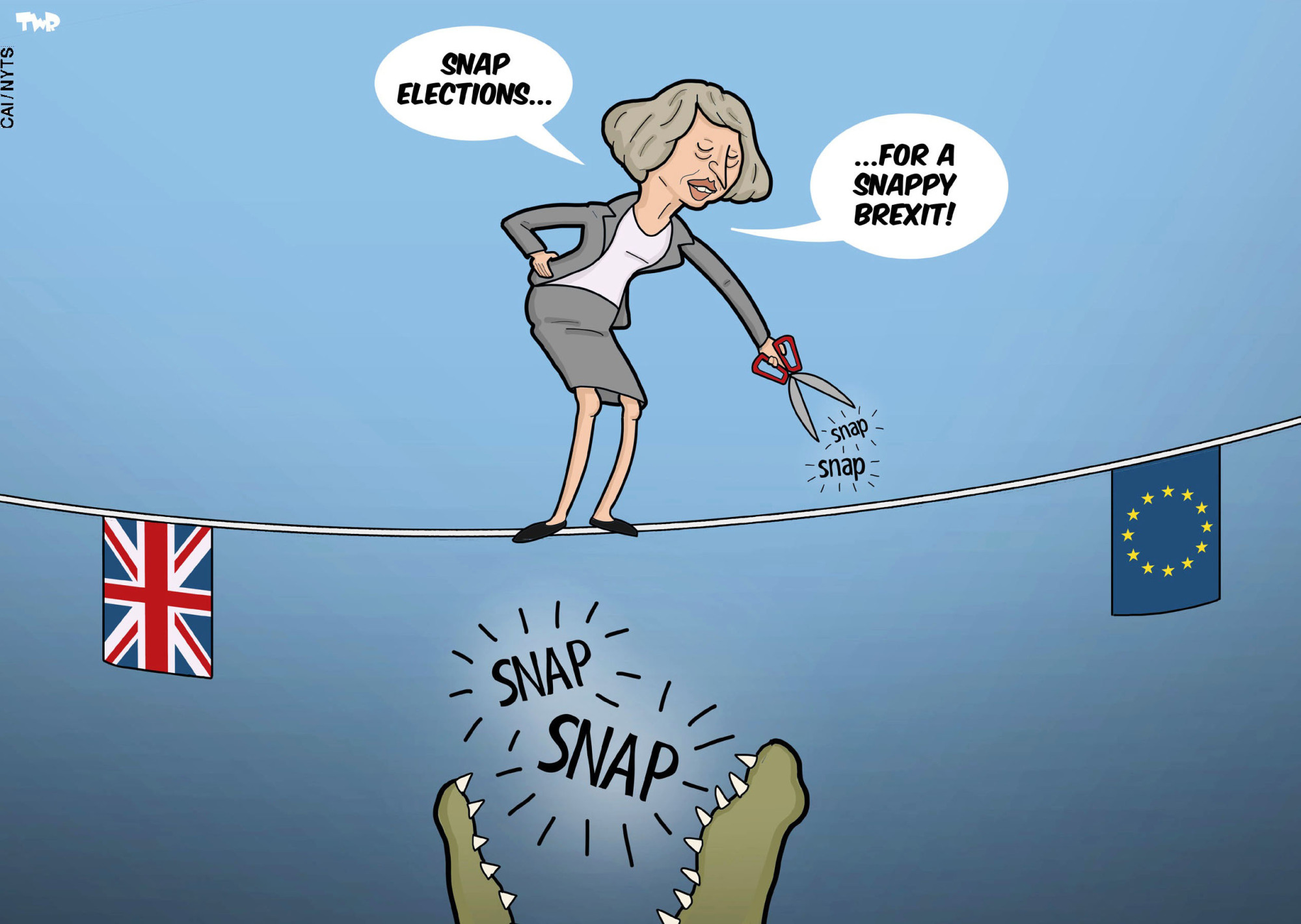The surprise decision by British Prime Minister Theresa May to call a general election sends one very clear message: While the Brexit negotiating process is moving forward in a manageable and increasingly positive way, she needs a clear and strong majority in Parliament to get all the necessary legislation —which will be extensive — passed.
If the "deep and special partnership" between the United Kingdom and the European Union, which she has called for, is to be realized, it is clear that there will be moments of compromise and moments of great controversy ahead. Concessions may have to be made with which the hardest line "leavers" in her own party will not be happy. In other instances it will be the so-called Europhiles, those who deplore the whole Brexit affair, who will be against her.
May's present small majority of 17 leaves her dangerously vulnerable to these challenges. To face them she needs a much bigger House of Commons majority, say 50 or 60, and the opportunity has clearly risen to secure just that, thanks to the persistent weakness of Labour under the poor and confused leadership of the leftist Jeremy Corbyn.

















With your current subscription plan you can comment on stories. However, before writing your first comment, please create a display name in the Profile section of your subscriber account page.